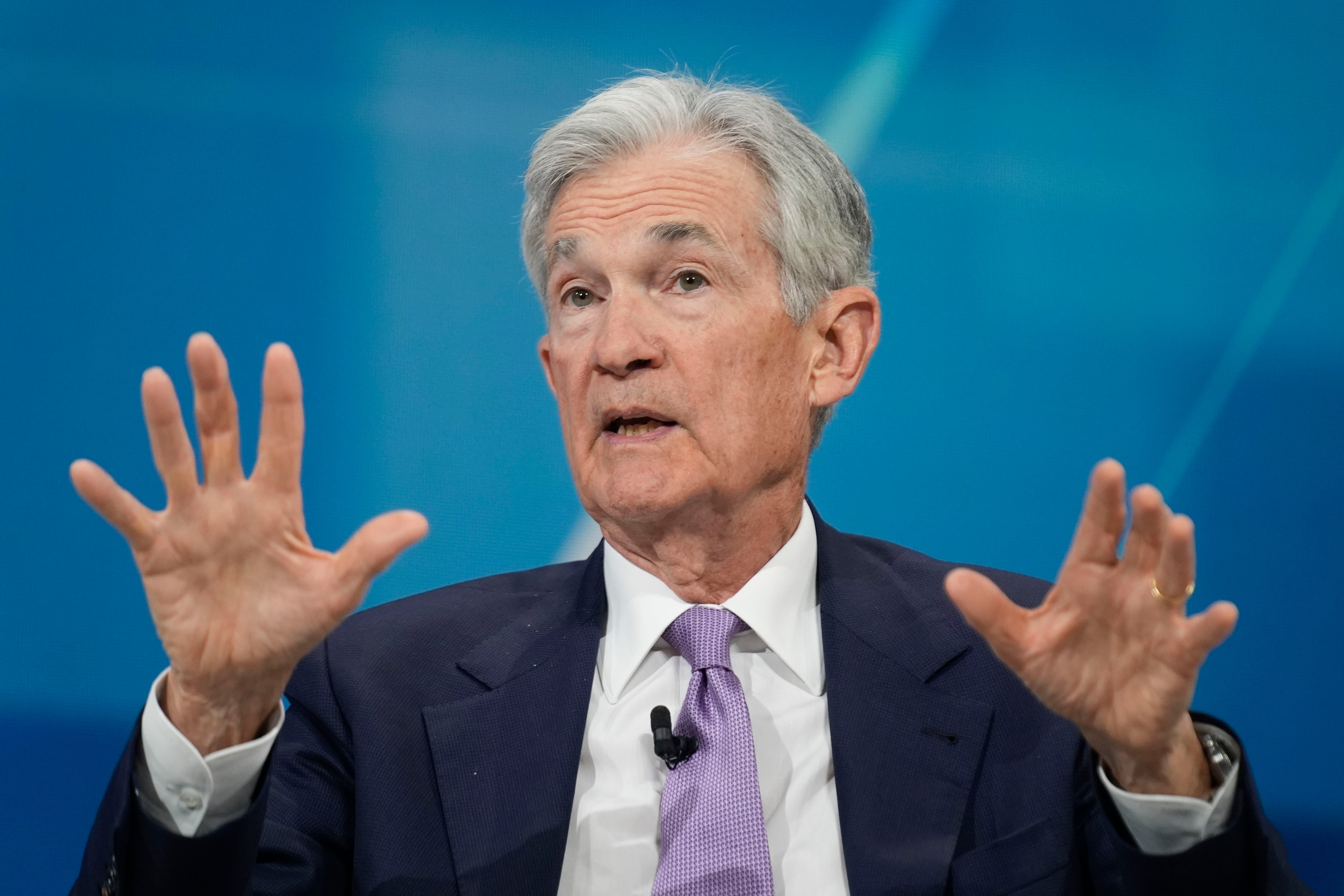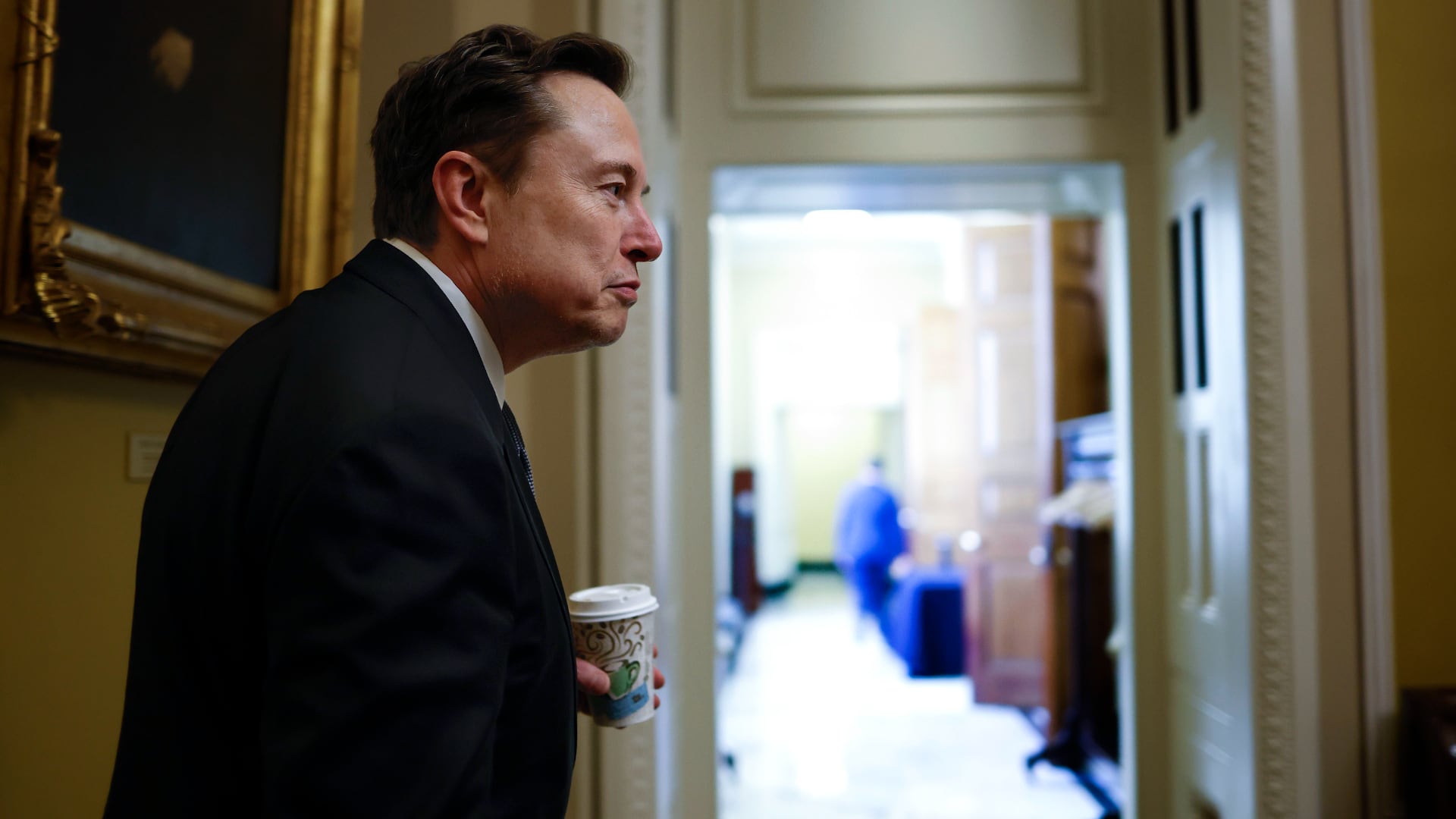By Stan Choe
Stocks on Wall Street dipped Thursday following mixed earnings reports from big companies and more signals the U.S. economy may be slowing.
The S&P 500 fell 24.73, or 0.6%, to 4,129.79 after drifting listlessly earlier this week. The Dow Jones Industrial Average slipped 110.39, or 0.3%, to 33,786.62, while the Nasdaq composite dropped 97.67, or 0.8%, to 12,059.56.
Tesla weighed heavily on the market for a second straight day on worries about how much profit it’s making on each of its electric vehicles. It dropped 9.7% after reporting revenue for the first three months of the year that fell short of analysts’ expectations as it repeatedly cut prices on its models.
Tesla's cutting prices “is good for inflation,” said Rob Haworth, senior investment strategist at U.S. Bank Wealth Management. “But for the market, the question has to be: You’re cutting prices again, it seems like we’re not seeing enough demand on the auto side.”
“It's still working its way through the system, higher rates for everyone. It’s more costly to buy a car, more costly to buy a house from a financing perspective.”
Several banks also dropped after reporting weaker profits and revenue than expected, including KeyCorp and Zions Bancorp. The spotlight has been particularly harsh on smaller and mid-sized banks amid worries their customers may pull out deposits following the second- and third-largest U.S. bank failures in history last month.
Zions fell 4.9%, and KeyCorp dropped 2.7%. Truist Financial fell 3.8% after reporting weaker profit than expected.
AT&T sank 10.4% after it reported slightly weaker revenue than analysts forecast, though profit squeaked past expectations. Analysts also pointed to weaker cash flow than some expected. It was the worst day for its stock in two decades and its second-worst since late 1983.
In the bond market, yields fell following a couple reports on the U.S. economy.
Slightly more workers filed for unemployment benefits last week than the week before, a potential signal that a still-strong job market is starting to soften under the weight of much higher interest rates. The number of continuing claims for jobless benefits also rose to the highest level since November 2021, according to Rubeela Farooqi, chief U.S. economist at High Frequency Economics.
A separate report said that manufacturing trends in the mid-Atlantic region weakened by much more than economists expected.
They helped drag the yield of the 10-year Treasury down to 3.53% from 3.59% late Wednesday. The two-year yield, which more closely tracks expectations for the Federal Reserve, fell to 4.14% from 4.25%.
The Fed has intentionally been trying to cool the economy for more than a year in hopes of reining in high inflation. It does that by raising short-term interest rates. It’s an effective but blunt tool that slows the broad economy, raising the risk of a recession and hurting prices for investments.
The housing market was one of the first sectors to bend under the weight of much higher interest rates, as mortgage rates quickly climbed. A report on Thursday said sales of previously occupied homes slowed in March but remains above its bottom hit at the start of this year. The job market is typically later to fall under the weight of higher interest rates.
Helping to limit Wall Street's losses Thursday were big gains from companies that topped analysts' expectations.
Lam Research was one of the strongest forces pushing upward on the S&P 500 after the supplier for the semiconductor manufacturing industry rose 7.2%. It reported profit and revenue for the latest quarter that beat Wall Street’s forecast.
Steel Dynamics climbed 4.9%, homebuilder D.R. Horton gained 5.6%, casino operator Las Vegas Sands rallied 3.7% and steelmaker Nucor rose 5.5% after all also reported stronger profit for the latest quarter than expected.
Like casinos, several companies that offer experiences to customers have recently been reporting strong demand, Haworth said. That’s despite worries about a slowing economy.
“There’s a real question as to how much demand destruction will there be,” he said. “If we do get a recession, there will be demand destruction, and yet airline earnings: They’re not seeing demand destruction.”
Broadly, the majority of companies have been topping profit forecasts so far in the early days of this reporting season. That’s likely in large part because expectations were quite low coming into it.
Analysts were forecasting this would mark the sharpest drop in S&P 500 earnings per share since the pandemic was pounding the economy in 2020. Profits are under pressure as inflation remains high, interest rates are much higher than a year ago and portions of the economy slow.
In markets abroad, Asian stock indexes were mixed after data showed Japan's trade deficit narrowed in March as exports rose more than expected. But exports to China fell, reflecting the slow pace of the recovery from pandemic disruptions.
European stocks were mixed.
___
AP Business Writer Elaine Kurtenbach contributed.












